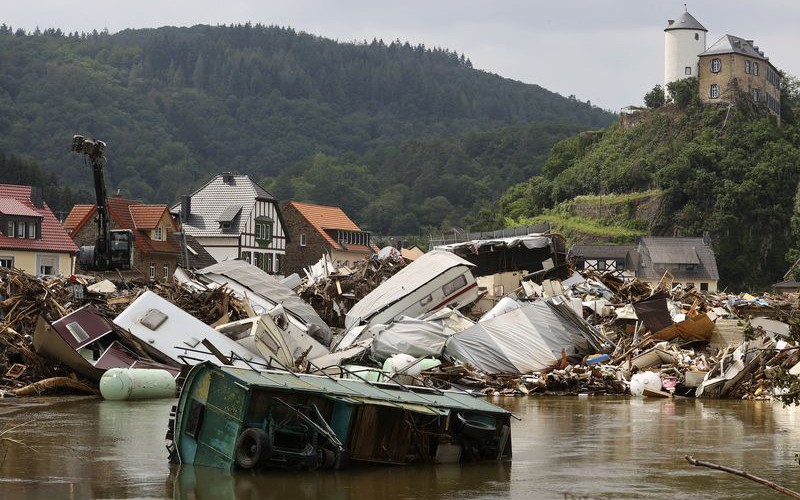
Houses destroyed in floods in Germany. (Photo REUTERS)
According to the European Environment Agency (EEA), climate change has cost the European Union more than 145 billion euros over the past decade. In which, the highest level of damage was recorded in 2017 when it reached 27.9 billion euros, due to heat waves causing drought and large-scale forest fires. According to a new study, the German economy faces a loss of 900 billion euros by the middle of this century.
Experts came up with the above figures based on calculations from the loss of agricultural output, the extent of damage, damage to buildings, infrastructure due to heavy rains and floods, and the decline. freight operations and their impacts on the health system. However, experts also point out that it is possible to reduce damage from 60% to 80% through adaptation measures, such as carbon capture and storage, if climate change occurs only in the region. low.
In 2022, all over the world are grappling with extreme weather patterns, notably heat and drought in Europe leading to wildfires, damaging crops. Coldiretti, Italy's agricultural union, said the unusual weather patterns had caused up to 6 billion euros in damage to the country's agricultural industry.
Italy's olive oil production fell by 30%, tomato products by 10%, and wheat for noodles by 5%. Spain also experienced a dry 2022, with the third lowest rainfall in the country's history, after 2005 and 2017. The Spanish city of Barcelona had to take measures such as banning the use of water. use clean water to wash the house, car or pump into the swimming pool; reduce the amount of water used for irrigation...
Many European countries are warned to continue to face severe droughts into 2023, after a winter of little rain and snow. The Italian National Research Council (CNR) said that rainfall in northern Italy has decreased by 40% in 2022 and the absence of rain since the beginning of 2023 is a serious problem. France is also facing a water crisis. The water level of hydroelectric reservoirs in France is recorded to be at a low level compared to 2022, the second lowest level in the past 10 years.
While efforts to cut emissions have not yielded the desired results, the energy crisis, caused in part by the tense situation in Ukraine, has made the country's green transition more difficult. Some countries have to return to promoting fossil fuel extraction to meet urgent energy needs.
Notably, EU countries still have disagreements about the use of nuclear energy in the green transition. France, Italy ... want the EU to strengthen policies to promote nuclear energy to cut emissions. Meanwhile, some countries such as Germany and Luxembourg believe that focusing on nuclear energy can undermine efforts to promote renewable energy.